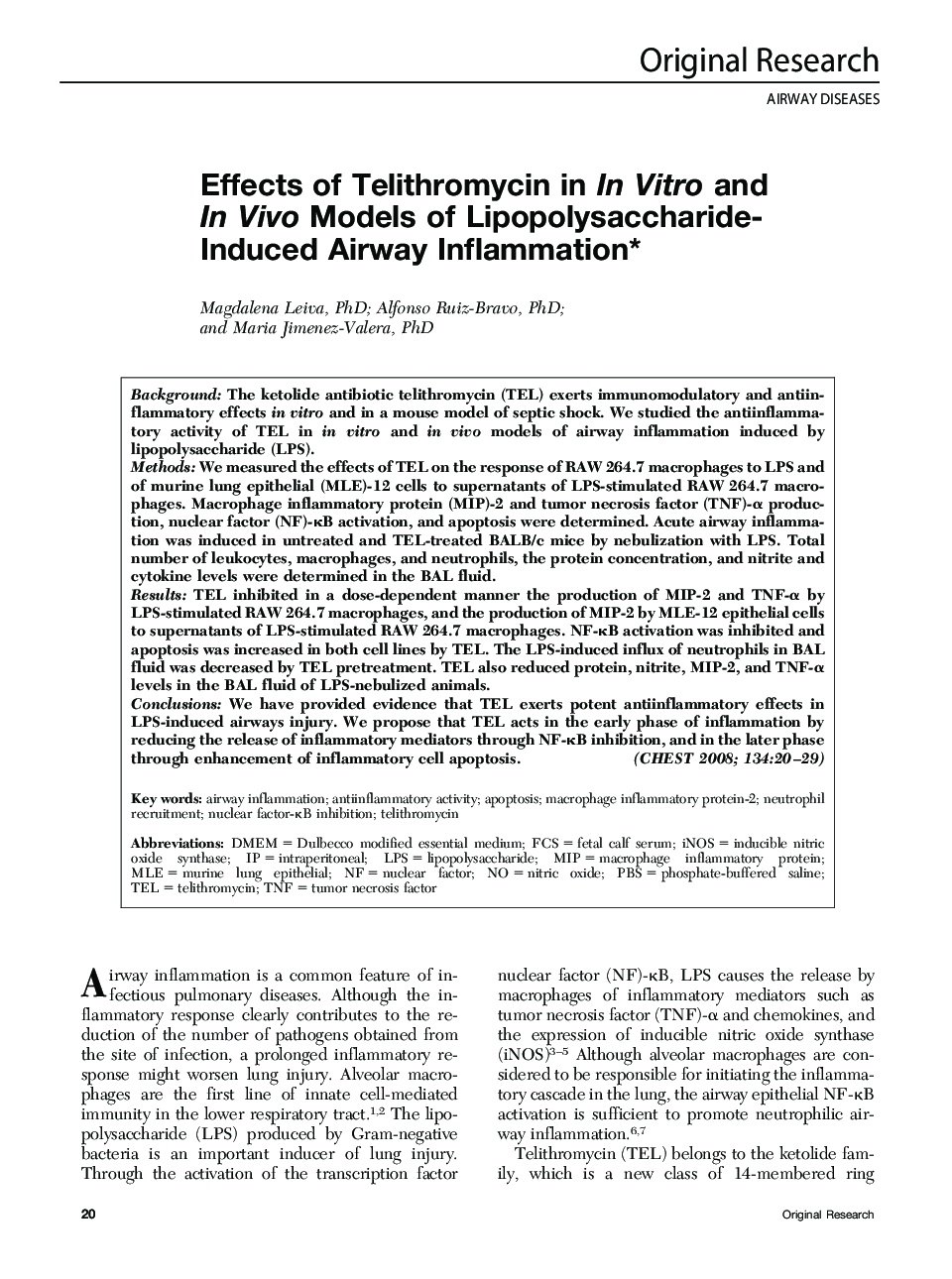| Article ID | Journal | Published Year | Pages | File Type |
|---|---|---|---|---|
| 2903249 | Chest | 2008 | 10 Pages |
BackgroundThe ketolide antibiotic telithromycin (TEL) exerts immunomodulatory and antiinflammatory effects in vitro and in a mouse model of septic shock. We studied the antiinflammatory activity of TEL in in vitro and in vivo models of airway inflammation induced by lipopolysaccharide (LPS).MethodsWe measured the effects of TEL on the response of RAW 264.7 macrophages to LPS and of murine lung epithelial (MLE)-12 cells to supernatants of LPS-stimulated RAW 264.7 macrophages. Macrophage inflammatory protein (MIP)-2 and tumor necrosis factor (TNF)-α production, nuclear factor (NF)-κB activation, and apoptosis were determined. Acute airway inflammation was induced in untreated and TEL-treated BALB/c mice by nebulization with LPS. Total number of leukocytes, macrophages, and neutrophils, the protein concentration, and nitrite and cytokine levels were determined in the BAL fluid.ResultsTEL inhibited in a dose-dependent manner the production of MIP-2 and TNF-α by LPS-stimulated RAW 264.7 macrophages, and the production of MIP-2 by MLE-12 epithelial cells to supernatants of LPS-stimulated RAW 264.7 macrophages. NF-κB activation was inhibited and apoptosis was increased in both cell lines by TEL. The LPS-induced influx of neutrophils in BAL fluid was decreased by TEL pretreatment. TEL also reduced protein, nitrite, MIP-2, and TNF-α levels in the BAL fluid of LPS-nebulized animals.ConclusionsWe have provided evidence that TEL exerts potent antiinflammatory effects in LPS-induced airways injury. We propose that TEL acts in the early phase of inflammation by reducing the release of inflammatory mediators through NF-κB inhibition, and in the later phase through enhancement of inflammatory cell apoptosis.
